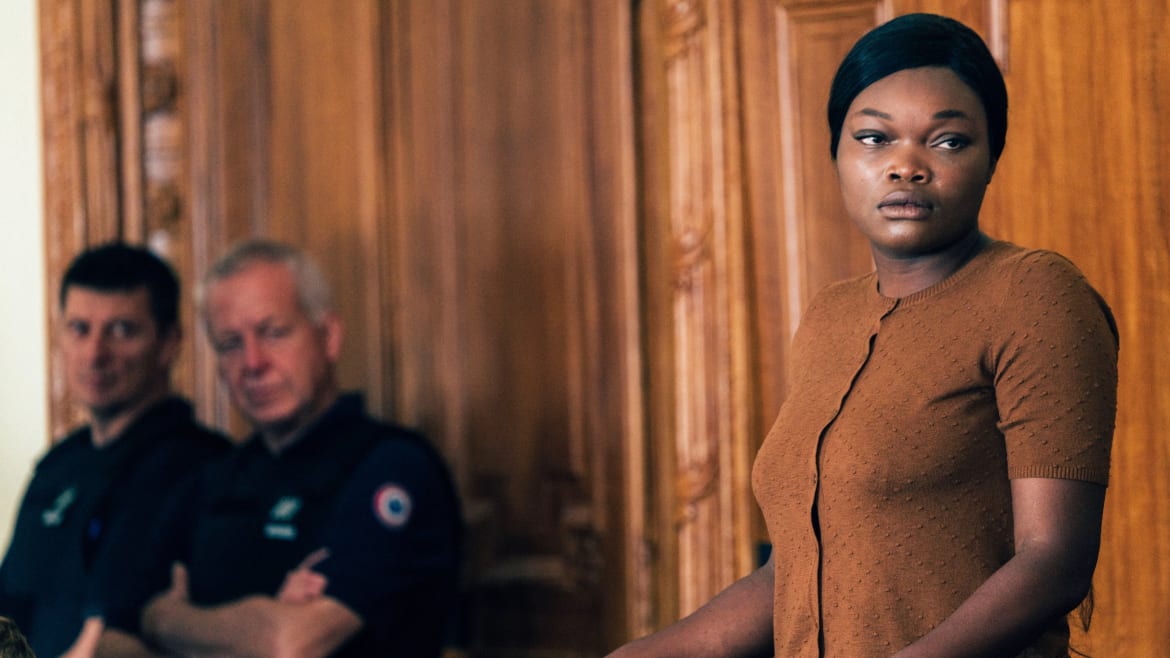New York Film Festival
Euripides’ Medea has been adapted countless times over, and yet Alice Diop breathes urgent and timely life into the Greek classic with Saint Omer, a blistering drama about a young immigrant woman charged with murdering her infant daughter and the novelist who attends the trial with a plan to turn the tale into a book. Told primarily through testimonial dialogue from the accused, a judge and witnesses, it’s a morally complex affair defined by faces, expressions and words, at once unsparing and compassionate, sparse and subtly evocative. Inspired by the real-life 2016 case of Fabienne Kanou, it’s a haunting (and haunted) film that exists both on the screen and, in another sense, inside one’s mind, and it’s there that it takes up lasting residence, challenging one’s idea of innocence and guilt and gnawing at one’s sense of right and wrong,
Premiering at the New York Film Festival following critically hailed debuts at the Venice and Toronto fests—not to mention France’s entry for Best International Feature Film at this year’s Oscars—Saint Omer initially focuses on Rama (Kayije Kagame), a Paris-born professor and writer whose parents are of Senegalese descent and who’s in a committed relationship with a Caucasian man named Adrian (Thomas de Pourquery). Rama is tall, slender and has a look of near perpetual sorrowful detachment, such that it’s not surprising when one of her sisters, at an afternoon get-together, remarks that she was always reserved. It’s not her siblings, however, who cause Rama grief; rather, it’s her mother, a cold and stern widow whose silence during this meeting speaks volumes about her disposition and attitude toward her daughter—which is likely why, over a meal, Adrian alludes to making renovations at their home (a hint about a forthcoming baby) and Rama cuts it off, not wanting to broach the topic with her mom.
Co-written by Amrita David and Marie Ndiaye, Saint Omer sporadically flashes back to Rama’s childhood with this harsh matriarch via dialogue-free sequences that appear and disappear with almost unconscious fluidity, and which are infused with anger, fear, distress, and tension. Diop says little but conveys much in these fleeting interludes, filling in the gaps of a mother-daughter relationship strained by decades of alienation, misery, and trauma. Much talking follows, though, once Rama travels from Paris to Saint-Omer to sit in the audience for the prosecution of Laurence Coly (Guslagie Malanga), a Senegalese mother who’s admitted to taking her 15-month-old daughter Elise to Berck, where she left her on the beach to be washed away by the tide. Laurence doesn’t dispute the facts of this heinous crime, nor her culpability (regarding others’ disgust over her “baby killer” conduct, she confesses, “I share their horror”). Nonetheless, she’s pleaded not guilty, and it’s that defense which transfixes Rama and makes up the majority of Diop’s film.

